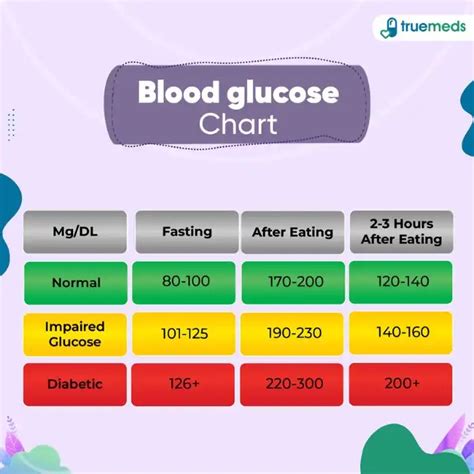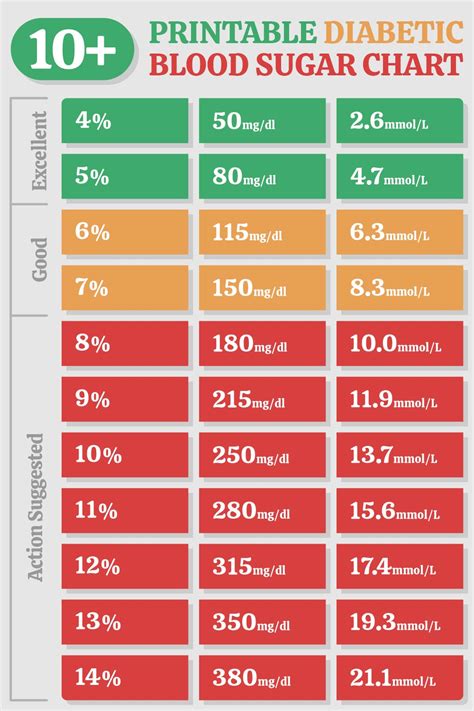Intro
Learn about normal blood sugar limits, including healthy glucose levels, blood sugar ranges, and diabetes management to maintain optimal blood sugar control and prevent complications.
Maintaining normal blood sugar levels is crucial for overall health and well-being. Blood sugar, also known as glucose, is the primary source of energy for the body's cells. When we eat, our body breaks down carbohydrates into glucose, which is then absorbed into the bloodstream. The pancreas produces insulin, a hormone that helps regulate blood sugar levels by facilitating the entry of glucose into cells. In recent years, the importance of managing blood sugar levels has become increasingly evident, with conditions like diabetes and prediabetes affecting millions of people worldwide. Understanding normal blood sugar limits is essential for preventing and managing these conditions.
The human body is designed to maintain blood sugar levels within a narrow range, and any significant deviations from this range can have serious health consequences. For instance, high blood sugar levels can lead to damage to organs and tissues, while low blood sugar levels can cause dizziness, confusion, and even loss of consciousness. The good news is that by understanding what constitutes normal blood sugar limits and taking steps to maintain them, individuals can significantly reduce their risk of developing blood sugar-related disorders. This involves adopting a healthy diet, engaging in regular physical activity, and monitoring blood sugar levels regularly.
Normal blood sugar limits vary depending on factors such as age, health status, and the time of day. Generally, a normal fasting blood sugar level is between 70 and 99 mg/dL, while a normal postprandial (after meal) blood sugar level is less than 140 mg/dL. However, these values can vary slightly depending on the individual and the laboratory conducting the test. It is essential to consult with a healthcare provider to determine the optimal blood sugar range for a specific individual. By doing so, individuals can take proactive steps to maintain their blood sugar levels within a healthy range, reducing the risk of complications and promoting overall well-being.
Understanding Blood Sugar Levels

Factors Affecting Blood Sugar Levels
Several factors can affect blood sugar levels, including diet, physical activity, stress, and certain medications. Consuming high-carbohydrate foods and drinks can cause blood sugar levels to rise, while regular physical activity can help lower blood sugar levels. Stress can also impact blood sugar levels, as it can cause the body to produce more cortisol, a hormone that raises blood sugar levels. Certain medications, such as steroids and certain psychiatric medications, can also affect blood sugar levels.Importance of Maintaining Normal Blood Sugar Levels

Benefits of Normal Blood Sugar Levels
Maintaining normal blood sugar levels has several benefits, including reducing the risk of chronic diseases, improving energy levels, and enhancing cognitive function. When blood sugar levels are within a normal range, the body can function properly, and individuals can feel more energetic and focused. Normal blood sugar levels can also reduce the risk of chronic diseases, such as heart disease, kidney disease, and nerve damage.Ways to Maintain Normal Blood Sugar Levels

Healthy Diet for Normal Blood Sugar Levels
A healthy diet for normal blood sugar levels should include plenty of fruits, vegetables, whole grains, and lean protein sources. Foods that are high in fiber, such as fruits, vegetables, and whole grains, can help slow down the digestion of carbohydrates and reduce the impact on blood sugar levels. Lean protein sources, such as chicken, fish, and tofu, can also help regulate blood sugar levels. Healthy fats, such as avocado and nuts, can also help slow down the digestion of carbohydrates and reduce inflammation.Monitoring Blood Sugar Levels

Interpreting Blood Sugar Test Results
Interpreting blood sugar test results can be complex, and it is essential to consult with a healthcare provider to determine the optimal blood sugar range for a specific individual. Generally, a normal fasting blood sugar level is between 70 and 99 mg/dL, while a normal postprandial blood sugar level is less than 140 mg/dL. However, these values can vary slightly depending on the individual and the laboratory conducting the test.Managing Blood Sugar Levels with Medication

Side Effects of Blood Sugar Medications
Blood sugar medications can have side effects, and it is essential to consult with a healthcare provider to determine the best course of treatment. Common side effects of blood sugar medications include nausea, vomiting, diarrhea, and hypoglycemia (low blood sugar). In rare cases, blood sugar medications can also cause more serious side effects, such as kidney damage or increased risk of heart disease.Lifestyle Changes for Normal Blood Sugar Levels

Stress Management for Normal Blood Sugar Levels
Stress can have a significant impact on blood sugar levels, and managing stress is essential for maintaining normal blood sugar levels. There are several ways to manage stress, including exercise, meditation, and deep breathing. Exercise can help reduce stress and improve insulin sensitivity, while meditation and deep breathing can help reduce stress and promote relaxation.What are normal blood sugar levels?
+Normal blood sugar levels are typically considered to be between 70 and 99 mg/dL for fasting glucose and less than 140 mg/dL for postprandial glucose.
How can I maintain normal blood sugar levels?
+Maintaining normal blood sugar levels involves adopting a healthy diet, engaging in regular physical activity, and monitoring blood sugar levels regularly.
What are the benefits of maintaining normal blood sugar levels?
+Maintaining normal blood sugar levels can reduce the risk of chronic diseases, improve energy levels, and enhance cognitive function.
In conclusion, maintaining normal blood sugar levels is crucial for overall health and well-being. By understanding what constitutes normal blood sugar limits and taking steps to maintain them, individuals can significantly reduce their risk of developing blood sugar-related disorders. We encourage readers to share their experiences and tips for maintaining normal blood sugar levels in the comments below. Additionally, if you found this article informative, please share it with your friends and family to help spread awareness about the importance of blood sugar management.
